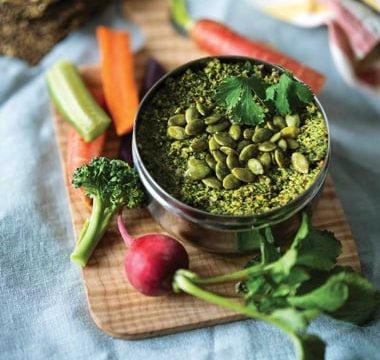The 18th chapter of Uttara Sthanam of Ashtanga Hridayam is named as Karnaroga Pratishedha. This chapter deals with the explanation of ‘Treatment of diseases of the ears.’
The topics covered in this chapter include –
- Vataja Karnashula Cikitsa
- Pittaja Karnashula Cikitsa
- Kaphaja Karnashula Cikitsa
- Raktaja Karnashula Cikitsa
- Karnanada – Badhirya Cikitsa
- Kshara Taila
- Pratinaha Cikitsa
- Putikarna Karmikarna Cikitsa
- Karna Vidradhi Cikitsa
- Karna Arshas, Arbuda Cikitsa
- Karna Vidarika
- Palishosha Cikitsa
- Shatavaryadi Taila
- Jivaniyagana Taila
- Chedana of pali
- Tantrika and Paripota Cikitsa
- Utpata Cikitsa
- Jambvadi Tailam & Ghrita
- Unmantha Cikitsa
- Duhkavardhana Cikitsa
- Parilehika Cikitsa
- Chinna Karna Cikitsa – treatment of lacerated ear lobe
- Karnapali Sandhana – Otoplasty
- Jalashukadi Tailam
- Nasika Sandhana – Rhinoplasty
- Nasika Sandhana – Rhinoplasty
- Oshtasandhana – correcting the cut lips
Pledge by the author(s)
अथात: कर्णरोगप्रतिषेध व्याख्यास्याम: ।
इति ह स्माहुरात्रेयादयो महर्षय: ।
After having offered prayers to the God, henceforth we are going to explain the chapter pertaining to the explanation of ‘Treatment of diseases of the ears’. Thus, say (pledge) Atreya and other sages.
Vataja Karnashula Chikitsa
कर्णशूले पवनजे पिबेद्रात्रौ रसाशितः ।
वातघ्नसाधितं सर्पिः कर्णं स्विन्नं च पूरयेत् ॥१॥
पत्राणां पृथगश्वत्थबिल्वार्कैरण्डजन्मनाम् ।
तैलसिन्धूत्थदिग्धानां स्विन्नानां पुटपाकतः ॥२॥
रसैः कवोष्णैस्तद्वच्च मूलकस्यारलोरपि ।
In earache born from Vata, the patient should drink ghee prepared from herbs which mitigate Vata at night after consuming food, containing juice of meat. Ears should be fomented and filled with the warm juice of leaves of aśvattha – Ficus religiosa, bilva – Aegle marmelos, arka – Calotropis gigantea, eraṇḍa – Ricinus communis each separately, smeared with oil of Sesamum indicum and rock salt and cooked or fomented in the putapaka method. The warm juice of mūlaka – Raphanus sativus or Ailanthus excelsa may also be used similarly.
Vataja Karnashula Chikitsa
गणे वातहरेऽम्लेषु मूत्रेषु च विपाचितः ॥३॥
महास्नेहो द्रुतं हन्ति सुतीव्रामपि वेदनाम् ।
Mahasneha (mixture of four fats-ghee, oil, marrow and muscle-fat) cooked with herbs mitigating Vata, liquids of sour taste (buttermilk, whey, fermented rice- wash etc.) and urine (of cow, goat etc.) filled into the ears quickly cures pain, though very severe.
Vataja Karnashula Chikitsa
महतः पञ्चमूलस्य काष्ठात्क्षौमेण वेष्टितात् ॥४॥
तैलसिक्तात्प्रदीप्ताग्रात्स्नेहः सद्यो रुजापहः ।
योज्यश्चैवं भद्रकाष्ठात्कुष्ठात्काष्ठाच्च सारलात् ॥५॥
Faggots of Mahat Pancamula -Bilva – Aegle marmelos, Agnimantha – Premnamucronata, Shyonaka – Oroxylum indicum, Patala – Stereospermumsuaveolens, Gambhari – Gmelina arborea wrapped with kshauma (fibers of flax) are soaked in oil for some time and then set on fire at the tip. The oil that drops down (filled into the ears in a lukewarm state), relieves the pain immediately. The oil obtained from Cedrus deodara, kuṣṭha – Saussurea lappa and the wood of sārala – Pinus longifolia to be used in the same manner.
Vataja Karnashula Chikitsa
वातव्याधिप्रतिश्यायविहितं हितमत्र च ।
वर्जयेच्छिरसा स्नानं शीताम्भःपानमह्न्यपि ॥ ६ ॥
The treatment advocated for Vatavyadhi (nervous diseases) and Pratishyaya (nasal catarrh) are useful here also. Bathing on the head and drinking cold water even during day time should be avoided.
Pittaja Karnashula Chikitsa
पित्तशूले सितायुक्तघृतस्निग्धं विरेचयेत् ।
द्राक्षायष्टीशृतं स्तन्यं शस्यते कर्णपूरणम् ॥ ७ ॥
In earache caused by Pitta, the patient should be given ghee mixed with sugar to drink and the purgation therapy administered after oleation. Breastmilk mixed with the decoction of drākṣā – Vitis vinifera and yaṣṭī – Glycyrrhiza glabra is good for filling the ears.
Pittaja Karnashula Chikitsa: Yashtyadi Tailam
यष्ट्यनन्ताहिमोशीरकाकोलीलोध्रजीवकैः ।
मृणालबिसमञ्जिष्ठाशारिवाभिश्च साधयेत् ॥ ८ ॥
यष्टीमधुरसप्रस्थक्षीरद्विप्रस्थसंयुतम् ।
तैलस्य कुडवं नस्यपूरणाभ्यञ्जनैरिदम् ॥ ९ ॥
निहन्ति शूलदाहोषाः
Medicated Oil prepared with the paste of (equal quantity of) yaṣṭī – Glycyrrhiza glabra, anantā – Hemidesmus indicus, hima – Coriandrum sativum, uśīra – Vetiveria zizanioides, kākolī - Fritillaria roylei, lodhra – Symplocos racemosa, jīvakaiḥ – Malaxis acuminata, mṛṇāla – stalk of Nelumbo nucifera, bisa – Nelumbo nucifera, mañjiṣṭhā – Rubia cordifolia and sariva-Hemidesmus indicus mixed with one prastha (768 ml) of decoction of yaṣṭīmadhu – Glycyrrhiza glabra, two prastha (1.536 litres) of milk, and one kudava (192 ml) of oil, used as nasal drops, filling the ears and collyrium to the eyes; it cures pain, burning sensation and local heat.
Pittaja Karnashula Chikitsa
केवलं क्षौद्रमेववा ।
यष्ट्यादिभिश्च सघृतैः कर्णौ दिह्यात्समन्ततः ॥१०॥
Even honey alone used in the same manner acts likewise. The area around the ears should be given a coating (with the paste of) yaṣṭī – Glycyrrhiza glabra etc. (enumerated above) mixed with ghee.
Kaphaja Karnashula Chikitsa
वामयेत्पिप्पलीसिद्धसर्पिःस्निग्धं कफोद्भवे ।
धूमनावनगण्डूषस्वेदान् कुर्यात्कफापहान् ॥ ११ ॥
In earache caused by Kapha, the patient should be lubricated with ghee processed with pippalī – Piper longum and then emesis therapy administered. Inhalation of smoke, nasal medication, mouth gargle and sudation therapies which mitigate Kapha should be done.
Kaphaja Karnashula Chikitsa
लशुनार्द्रकशिग्रूणां मुरङ्ग्या मूलकस्य च ।
कदल्याः स्वरसः श्रेष्ठः कदुष्णः कर्णपूरणे ॥ १२ ॥
अर्काङ्कुरानम्लपिष्टांस्तैलाक्ताल्लवणान्वितान् ।
सन्निधाय स्नुहीकाण्डे कोरिते तच्छदावृतान् ॥१३॥
स्वेदयेत्पुटपाकेन स रसः शूलजित्परम् ।
Juice of laśuna – Allium sativum, ārdraka – Zingiber officinale, śigrūṇāṃ – Moringa oliefera, muraṅgyā – Leptadenia reticulata, mūlakasya – Raphanus sativus or kadalyāḥ – Musa paradisiaca made lukewarm is best for filling the ears. The sprouts of Calotropis gigantea macerated with any sour liquid mixed with oil and salt kept covered with the stem bark of the same Euphorbia neriifolia pounded. It is then cooked with the putapaka method and the juice taken out is filled into the ears; this juice is best to relieve the pain.
Kaphaja Karnashula Chikitsa
रसेन बीजपूरस्य कपित्थस्य च पूरयेत् ॥१४॥
शुक्तेन पूरयित्वा वा फेनेनान्ववचूर्णयेत् ।
Ears may be filled with the juice of Bijapura – Citrus medica and Kapittha – Feronia limonia or it may be filled with Shukta (fermented liquid) added with the powder of cuttlefish bone.
Kaphaja Karnashula Chikitsa
अजाविमूत्रवंशत्वक्सिद्धं तैलं च पूरणम् ॥ १५ ॥
सिद्धं वा सार्षपं तैलं हिङ्गुतुम्बुरुनागरैः ।
Medicated oil prepared with the decoction of bark of vaṃśa – Bambusa arundinacea and urine of goat and sheep; or sarshapa taila boiled with hiṅgu – Ferula asafoetida. tumburu – Zanthoxylum alatum and nāgara – Zingiber officinale are good for filling the ears.
Raktaja Karnashula Chikitsa
रक्तजे पित्तवत्कार्यं सिरां चाशु विमोक्षयेत् ॥ १६ ॥
In that, caused by blood, the treatment is the same as that of Pitta origin, vein should be cut (to let out blood) soon.
Raktaja Karnashula Chikitsa
पक्वे पूयवहे कर्णे धूमगण्डूषनावनम् ।
युञ्ज्यान्नाडीविधानं च दुष्टव्रणहरं च यत् ॥ १७ ॥
When the ears are discharging pus after ripening; therapies such as inhalation, mouth gargle and nasal medication should be administered. The treatment prescribed for nāḍī – dustanadi varna (vitiated sinus ulcer) and those treatments which cure foul ulcers should be adopted here.
Raktaja Karnashula Chikitsa: Pichu, Varti
स्रोतः प्रमृज्य दिग्धं तु द्वौ कालौ पिचुवर्तिभिः ।
पुरेण धूपयित्वा तु माक्षिकेण प्रपूरयेत् ॥ १८ ॥
सुरसादिगणक्वाथफाणिताक्तां च योजयेत् ।
पिचुवर्तिं सुसूक्ष्मैश्च तच्चूर्णैरवचूर्णयेत् ॥ १९ ॥
The orifice of the ears should be cleared at both the times of the day with swabs or wicks, then exposed to the fumes of pura (guggulu) – Commiphora mukul and filled with honey. Cotton wick smeared with the thick decoction of herbs of Surasadigana (vide chapter 15 of Sutrasthana) along with phanita should be introduced into the ears.The fine powder of the herbs may be used for dusting the ears.
Benefits of above treatment
शूलक्लेदगुरुत्वानां विधिरेष निवर्तकः ।
This treatment is beneficial to relieve pain, exudation and feeling of heaviness.
Raktaja Karnashula Chikitsa: Priyangvadi tailam
प्रियङ्गुमधुकाम्बष्ठाधातक्युत्पलपर्णिभिः ॥ २० ॥
मञ्जिष्ठालोध्रलाक्षाभिः कपित्थस्य रसेन च ।
पचेत्तैलं तदास्रावं निगृह्णात्याशु पूरणात् ॥ २१ ॥
Medicated oil should be cooked with (the decoction and paste of) priyaṅgu – Callicarpa macrophylla, madhuka – Glycyrrhiza glabra, ambaṣṭhā – Cyclea peltata, dhātakī – Woodfordia fruticosa, utpala – Nymphaea alba the two parni- Shalaparni – Desmodium gangeticum, Prishniparni – Uraria picta, mañjiṣṭhā – Rubia cordifolia, lodhra – Symplocos racemosa, lākṣā – Laccifer lacca and Juice of kapitthasya – Feronia limonia this filled into the ears stops the discharges quickly.
Karnanada: Badhirya Chikitsa
नादबाधिर्ययोः कुर्याद्वातशूलोक्तमौषधम् ।
श्लेष्मानुबन्धे श्लेष्माणं प्राग्जयेद्वमनादिभिः ॥ २२ ॥
In Karnanada (ringing in the ears) and badhrirya (deafness), the treatment prescribed for Vatashula (pains caused by aggravated Vata) should be done; when associated with Kapha, Kapha should be gotten over earlier by emesis therapy etc.
Erandadi tailam
एरण्डशिग्रुवरुणमूलकात्पत्रजे रसे ।
चतुर्गुणे पचेत्तैलं क्षीरे चाष्टगुणोन्मिते ॥२३॥
यष्ट्याह्वाक्षीरकाकोलीकल्कयुक्तं निहन्ति तत् ।
नादबाधिर्यशूलानि नावनाभ्यङ्गपूरणैः ॥२४॥
Medicated oil should be prepared with four parts of juice of leaves of eraṇḍa – Ricinus communis, śigru – Moringa oliefera, varuṇa – Crataeva nurvala and mūlakā – Raphanus sativus, eight parts of cow milk and paste of yaṣṭi – Glycyrrhiza glabra and kṣīrakākolī – Roscoea purpurea. This used for nasal drops, anointing and filling the ears cures ringing in the ears, deafness and pain.
Prativishadi tailam
पक्वं प्रतिविषाहिङ्गुमिशित्वक्स्वर्जिकोषणैः ।
सशुक्तैः पूरणात्तैलं रुक्स्रावाश्रुतिनादनुत् ॥ २५ ॥
Oil cooked with prativiṣā – Aconitum heterophyllum, hiṅgu – Ferula asafoetida, miśi – Anethum graveolens, tvak – Cinnamomum zeylanica, svarjika – Svarjika and ūṣaṇaiḥ – Piper nigrum and added with Shukta filled into the ears cures pain, exudation and ringing in the ears.
कर्णनादे हितं तैलं सर्षपोत्थं च पूरणे ।
Sarshapa taila is beneficial for sound in the ears when filled into the ears.
Kshara Taila
शुष्कमूलकखण्डानां क्षारो हिङ्गु महौषधम् ॥ २६ ॥
शतपुष्पावचाकुष्ठदारुशिग्रुरसाञ्जनम् ।
सौवर्चलयवक्षारस्वर्जिकौद्भिदसैन्धवम् ॥ २७ ॥
भूर्जग्रन्थिविडं मुस्ता मधुशुक्तं चतुर्गुणम् ।
मातुलुङ्गरसस्तद्वत्कदलीस्वरसश्च तैः ॥ २८ ॥
पक्वं तैलं जयत्याशु सुकृच्छ्रानपि पूरणात् ।
कण्डूं क्लेदं च बाधिर्यपूतिकर्णत्वरुक्कृमीन् ॥ २९ ॥
क्षारतैलमिदं श्रेष्ठं मुखदन्तामयेषु च ।
Ash of dried pieces of śuṣkamūlaka – Raphanus sativus (obtained by burning it), hiṅgu – Ferula asafoetida, mahauṣadham – Zingiber officinale, śatapuṣpā – Anethum graveolens, vacā – Acorus calamus, kuṣṭha – Saussurea lappa, dāru – Cedrus deodara, śigru – Moringa oliefera, extract of Berberis aristata black salt, alkali prepared of Hordeum vulgare, Svarjika, Sodium chloride rock salt, bhūrja granthi – Betula utilis, Sodium sulphate and mustā – Cyperus rotundus are made into decoction. To this are added four parts of fermented honey, juice of Citrus medica and similarly juice of kadalī -Musa paradisiaca shall be used and medicated oil prepared; filled into the ears, it quickly cures itching, exudation, though very difficult to treat, deafness, foul smell, pain and infestation by bacteria. This is known as Kshara Taila, is best in diseases of the face (mouth) and teeth.
Raktamokshana and Vamana
अथ सुप्ताविव स्यातां कर्णौ रक्तं हरेत्ततः ॥३०॥
सशोफक्लेदयोर्मन्दश्रुतेर्वमनमाचरेत् ।
बाधिर्यं वर्जयेद्बालवृद्धयोश्चिरजं च यत् ॥३१॥
When the ears are found to be sleeping (loss of hearing), then bloodletting should be done. When accompanied with swelling and exudation, the patient of poor hearing should be given Vamana (emesis therapy). Deafness found in children and the aged and that persisting for a long time should be rejected.
Pratinaha Chikitsa
प्रतीनाहे परिक्लेद्य स्नेहस्वेदैर्विशोधयेत् ।
कर्णशोधनकेनानु कर्णं तैलस्य पूरयेत् ॥ ३२ ॥
सशुक्तसैन्धवमधोर्मातुलुङ्गरसस्य वा ।
शोधनाद्रूक्षतोत्पत्तौ घृतमण्डस्य पूरणम् ॥ ३३ ॥
In Pratinaha, the ears should be made humid by sneha (lubrication) and sveda (fomentation).Then cleaned with Karnashodhanaka (ear scoop) followed by filling the ear either with oil, with Shukta and rock salt or juice of Citrus medica. When dryness appears as a result of cleaning, ears should be filled with scum of ghee.
Pratinaha Chikitsa
क्रमोऽयं मलपूर्णेऽपि कर्णे कण्ड्वां कफापहम् ।
नस्यादि तद्वच्छोफेऽपि कटूष्णैश्चात्र लेपनम् ॥३४॥
This treatment holds good even when the ears are full of mala (exudation). In case of itching, nasal drops etc., which mitigate Kapha should be administered. Similarly, so even in swelling, the ears should be given a coating (external) with the paste of herbs which are pungent and hot.
Putikarna and Krimikarna Chikitsa
कर्णस्रावोदितं कुर्यात्पूतिकृमिणकर्णयोः ।
पूरणं कटुतैलेन विशेषात्कृमिकर्णके ॥ ३५ ॥
In Putikarna and Krimikarna, the treatment prescribed for Karnasrava should be done. In Krimikarnaka, filling the ear with Katu Taila (mustard oil) is especially beneficial.
Karna Vidradhi Chikitsa
वमिपूर्वा हिता कर्णविद्रधौ विद्रधिक्रिया ।
पित्तोत्थकर्णशूलोक्तं कर्तव्यं क्षतविद्रधौ ॥ ३६ ॥
In Karna Vidradhi, the treatment prescribed for Vidradhi should be done, prepared by emesis therapy. In Kshata Vidradhi, treatment should be done advocated for Karnashula which is caused by Pitta.
Karna Arshas, Arbuda Chikitsa
अर्शोऽर्बुदेषु नासावत्
In Arshas and Arbuda of the ears, the treatment prescribed for those diseases of the nose (chapter 20) should be done.
Karna Vidarika
आमा कर्णविदारिका ।
कर्णविद्रधिवत्साध्यायथादोषोदयेन च ॥३७॥
The unripe Karnavidarika should be treated similar to Karna Vidradhi, considering the predominant dosha.
Palishosha Chikitsa
पालीशोषेऽनिलश्रोत्रशूलवन्नस्यलेपनम् ।
स्वेदं च कुर्यात्स्विन्नां च पालीमुद्वर्तयेत्तिलैः ॥३८॥
प्रियालबीजयष्ट्याह्वहयगन्धायवान्वितैः ।
ततः पुष्टिकरैः स्नेहैरभ्यङ्गं नित्यमाचरेत् ॥३९॥
In Palishosha, nasal medication and application of paste are the same as prescribed for Karnashula of Vata origin. The pinna should be lubricated, fomented and after fomentation, it should be massaged with (the powder of) tila – Sesamum indicum, priyālabīja – seeds of Buchanania lanzan, yaṣṭi – Glycyrrhiza glabra and hayagandhā – Withania somnifera along with yava-Hordeum vulgare seeds. Then, fats (medicated ghee or oil) should be anointed daily which are nourishing should be done.
Shatavaryadi Taila
शतावरीवाजिगन्धापयस्यैरण्डजीवकैः ।
तैलं विपक्वं सक्षीरं पालीनां पुष्टिकृत्परम् ॥ ४० ॥
Oil cooked with śatāvarī – Asparagus racemosus, vājigandhā – Withania somnifera, payasyā – Impomoea paniculata, eraṇḍa – Ricinus communis and jīvakaiḥ – Malaxis acuminata added with cow milk is best to nourish the pinna (ear lobe).
Jivaniyagana Taila
कल्केन जीवनीयेन तैलं पयसि पाचितम् ।
आनूपमांसक्वाथे च पालीपोषणवर्धनम् ॥ ४१ ॥
Medicated oil prepared with the decoction of meat of animals of marshy regions, paste of herbs of Jivaniya gana (chapter 15 of sutrasthana) and cow milk is good for nourishment and growth of the pinna.
Chedana of pali
पालीं छित्त्वाऽतिसङ्क्षीणां शेषां सन्धाय पोषयेत् ।
The pinna which has emaciated too much should be excised (arty) and then nourished.
Tantrika and Paripota Chikitsa
याप्यैवं तन्त्रिकाख्यापि परिपोटेऽप्ययं विधिः ॥ ४२ ॥
The same treatment should be done for Tantrika and also for Paripota.
Utpata Chikitsa
उत्पाते शीतलैर्लेपो जलौकोहृतशोणिते ।
In Utpata, application of paste of herbs of cold potency should be done after removing the blood by application of leeches.
Jambvadi Tailam & Ghrita
जम्ब्वाम्रपल्लवबलायष्टीलोध्रतिलोत्पलैः ॥ ४३ ॥
सधान्याम्लैः समञ्जिष्ठैः सकदम्बैः सशारिवैः ।
सिद्धमभ्यञ्जने तैलं विसर्पोक्तघृतानि च ॥ ४४ ॥
Medicated oil prepared with the decoction of tender leaves of jambu – Syzygium cumini, āmra - Mangifera indica, balā – Sida cordifolia, yaṣṭī – Glycyrrhiza glabra, lodhra – Symplocos racemosa, tila – Sesamum indicum and utpala – Nymphaea alba, mañjiṣṭa – Paste of Rubia cordifolia, kadambaiḥ – Neolamarckia cadamba and śārivaiḥ – Hemidesmus indicus added with fermented rice wash,is good for anointing and massage; so also the medicated ghee recipes prescribed for Visarpa (chapter 18 of Cikitsa Sthana).
Unmantha Chikitsa
उन्मन्थेऽभ्यञ्जनं तैलं गोधाकर्कवसान्वितम् ।
तालपत्र्यश्वगन्धार्कबाकुचीफलसैन्धवैः ॥ ४५ ॥
सुरसालाङ्गलीभ्यां च सिद्धं तीक्ष्णं च नावनम् ।
In Unmantha, the pinna (or ear lobe) should be anointed with oil prepared with tālapatrī – (Mushakaparni) – Asparagus adscendens, aśvagandha – Withania somnifera, arka – Calotropis gigantea, bākucīphala – fruits of Psoralea corylifolia, rock salt and muscle-fat of godha (iguana Lizard) and karka (crab) or the oil prepared with surasā – Ocimum sanctum and lāṅgalī – Gloriosa superba, nasal drops of powerful action should be administered.
Duhkavardhana Chikitsa
दुर्विद्धेऽश्मन्तजम्ब्वाम्रपत्रक्वाथेन सेचिताम् ॥ ४६ ॥
तैलेन पालीं स्वभ्यक्तां सुश्लक्ष्णैरवचूर्णयेत् ।
चूर्णैर्मधुकमञ्जिष्ठाप्रपुण्ड्राह्वनिशोद्भवैः ॥ ४७ ॥
लाक्षाविडङ्गसिद्धं च तैलमभ्यञ्जने हितम् ।
The Durviddha (or Dukha Vardhana) pinna (or lobe) should be washed with the decoction of aśmanta – Ficus rumphii, patra – and leaves of jambu – Syzygium cumini and āmra - Mangifera indica anointed with oil and given fomentation; fine powder of madhuka – Glycyrrhiza glabra, mañjiṣṭhā – Rubia cordifolia, prapuṇḍrāhva – Nymphaea lotus and niśā – Curcuma longa should be sprinkled on it. Oil prepared / boiled with lākṣā – Laccifer lacca and viḍaṅga – Embelia ribes is good for anointing.
Parilehika Chikitsa
स्विन्नां गोमयजैः पिण्डैर्बहुशः परिलेहिकाम् ॥ ४८ ॥
विडङ्गसारैरालिम्पेदुरभ्रीमूत्रकल्कितैः ।
कौटजेङ्गुदकारञ्जबीजशम्याकवल्कलैः ॥ ४९ ॥
अथवाऽभ्यञ्जनं तैर्वा कटुतैलं विपाचयेत् ।
सनिम्बपत्रमरिचमदनैर्लेहिकाव्रणे ॥ ५० ॥
Parilehika should be given fomentation many times with bolus of cow dung and covered with the paste of (Vidanga seeds) seeds of Embelia ribes, macerated with sheep’s urine; or paste of seeds of Kutaja-Holarrhena antidysenterica, iṅguda – Balanites aegyptiaca, kārañjabīja – seeds of Pongamia pinnata, and bark of śamyāka – Cassia fistula (macerated with sheep’s urine); mustard oil boiled with these herbs and nimbapatra – leaves of Azadirachta indica, marica – Piper nigrum and madanai: – Randia dumetorum should be used for anointing in ulcers (wound) caused by Lehika
Chinna Karna Chikitsa: treatment of lacerated ear lobe
छिन्नं तु कर्णं शुद्धस्य बन्धमालोच्य यौगिकम् ।
शुद्धास्रं लागयेल्लग्ने सद्यश्छिन्ने विशोधनम् ॥५१॥
The ear (lobe) which is lacerated (torn, cut) just then, should be cleaned till pure blood exudes. After cleansing, the cut ends are placed together (sutured), after suturing, it is bandaged suitably.
Karnapali Sandhana: Otoplasty
अथ ग्रथित्वा केशान्तं कृत्वा छेदनलेखनम् ।
निवेश्य सन्धिं सुषमं न निम्नं न समुन्नतम् ॥५२॥
शोणितस्थापनैर्व्रण्यमाचारं चादिशेत्ततः ।
सप्ताहादामतैलाक्तं शनैरपनयेत्पिचुम् ॥ ५४ ॥
सुरूढं जातरोमाणं श्लिष्टसन्धिं समं स्थिरम् ।
सुवर्ष्माणमरोगं च शनैः कर्णं विवर्धयेत् ॥ ५५ ॥
The skin below the border of the hair at the back of the ears is elevated by either excision or scraping, rolled over the joint (of the skin) to the pinna and placed on it, neither depressed nor elevated but at an even level, site is then anointed with honey and ghee and covered with a swab (of cotton), then tied with a thread neither too tight nor too loose; sprinkled next with the powder of herbs which stop bleeding and then the regimen prescribed in the treatment of ulcer advised (be adhered to). The site of the ulcer (pinna) should be anointed with Amataila for seven days and the swab removed slowly. The ulcer which has cleared well, with growth of hairs, the joints well-knit, even and static, well developed (reached the proper shape) and not having any disease, the ear should be made to grow gradually.
Jalashukadi Tailam
जलशूकः स्वयङ्गुप्ता रजन्यौ बृहतीफलम् ।
अश्वगन्धाबलाहस्तिपिप्पलीगौरसर्षपाः ॥५६॥
मूलं कोशातकाश्वघ्नरूपिकासप्तपर्णजम् ।
छुच्छुन्दरी कालमृता गृहं मधुकरीकृतम् ॥५७॥
जतूका जलजन्मा च तथा शबरकन्दकम् ।
एभिः कल्कैः खरं पक्वं सतैलं माहिषं घृतम् ॥५८॥
हस्त्यश्वमूत्रेण परमभ्यङ्गात्कर्णवर्धनम् ।
Medicated oil prepared with the decoction and paste of jalaśūkaḥ – (Saivala) – Vallisneria spiralis, svayaṅguptā – Mucuna pruriens, the two Rajani -Haridra – Curcuma longa, Daruharidra – Berberis aristata, bṛhatīphalam – Fruits of Solanum indicum, aśvagandhā – Withania somnifera, balā – Sida cordifolia, hastipippalī – Scindapsus officinalis, gaurasarṣapāḥ – Sinapis alba, mūlaṃ kośātaka – roots of Luffa acutangula, aśvaghna – Nerium indicum, rūpikā – (Arka) – Calotropis gigantea and saptaparṇajam – Alstonia scholaris, chuchundari (a kind of mouse) died of old age, the house built by the bee (honey comb), bat, leech and shabarakandaka (Lasuna – Allium sativum or Rodhra – Symplocos racemosa) with paste of these added with ghee prepared from buffalo’s milk, urine of elephant and horse and cooked to khara paka (hard boiling). This oil, if anointed, is best to make pinna grow well.
Nasika Sandhana: Rhinoplasty
अथ कुर्याद्वयःस्थस्य छिन्नां शुद्धस्य नासिकाम्॥५९॥
छिन्द्यान्नासासमं पत्रं तत्तुल्यं च कपोलतः ।
त्वङ्मांसं नासिकासन्ने रक्षंस्तत्तनुतां नयेत् ॥ ६० ॥
सीव्येद्गण्डं ततः सूच्या सेविन्या पिचुयुक्तया ।
नासाच्छेदेऽथ लिखिते परिवर्त्योपरि त्वचम् ॥ ६१ ॥
कपोलवध्रं सन्दध्यात्सीव्येन्नासां च यत्नतः ।
नाडीभ्यामुत्क्षिपेदन्तः सुखोच्छ्वासप्रवृत्तये ॥ ६२ ॥
आमतैलेन सिक्त्वाऽनु पत्तङ्गमधुकाञ्जनैः ।
शोणितस्थापनैश्चान्यैः सुश्लक्ष्णैरवचूर्णयेत् ॥ ६३ ॥
ततो मधुघृताभ्यक्तं बद्ध्वाऽऽचारिकमादिशेत् ।
ज्ञात्वाऽवस्थान्तरं कुर्यात्सद्योव्रणविधिं ततः ॥ ६४ ॥
छिन्द्याद्रूढेऽधिकं मांसं नासोपान्ताच्च चर्म तत् ।
सीव्येत्ततश्च सुश्लक्ष्णं हीनं संवर्धयेत्पुनः ॥ ६५ ॥
The mutilated nose of a person of middle age should be cleaned well. A (thick) leaf should be cut in the shape of the (normal) nose, placed on the cheek (which is nearby) and skin of similar shape cut from the cheek protecting the skin and muscle in the proximity of the nose, the layer is delicately removed. Later, with the help of needle and suturing thread, along with the swab, the cheek is sutured keeping (the proximal) edge intact on cheek, the other (distill) edge of the skin and muscle is pulled up, rolled over and placed on the nose, which has been scraped (to cause bleeding); two tubes (of reeds or metal) are inserted into the nostrils to facilitate easy breathing. The new flap from the cheek joined by suturing on the nose with caution. The place is then anointed with raw oil and dusted with the fine powder of herbs which stop bleeding such as pattaṅga – Caesalpinia sappan, madhuka – Glycyrrhiza glabra and antimony sulphide, and similar others. Next the area should be bathed with honey and ghee, bandaged and the patient advised to follow the regimen (prescribed in the oleation therapy) (chapter 16 of Sutrasthana). The treatment prescribed for Sadyovrana (Accidental wound) should be adopted suitably stage after stage; any extra growth of muscle should be cut off, the skin (of the cheek) nearer to the flap (grafted on the nose) which is smooth and not grown properly, should be cut and the site sutured, afterwards it should be cut again and made to grow.
Nasika Sandhana: Rhinoplasty
निवेशिते यथान्यासं सद्यश्छिन्नेऽप्ययं विधिः ।
According to the text of sutra, even for the nose which has been cut off just then, the same treatment described above holds good.
Oshtasandhana: correcting the cut lips
नाडीयोगाद्विनौष्ठस्य नासासन्धानवद्विधिः ॥ ६६ ॥
Correcting of the mutilated lips is similar to that (joining) of the nose except the insertion of the tubes.
इति श्री वैद्यपति सिंहगुप्तसूनु श्रीमद्वाग्भटविरचितायामष्टाङ्गहृदयसंहितायां षष्ठे उत्तरस्थाने कर्णरोगप्रतिषेधो नामाष्टादशोऽध्याय: ॥१८॥
Thus, ends the chapter- Karna roga Pratishedha – the eighteenth in Uttara Sthana of Astanga Hridaya Samhita composed by Srimad Vagbhata, son of Sri Vaidyapati Simhagupta.













